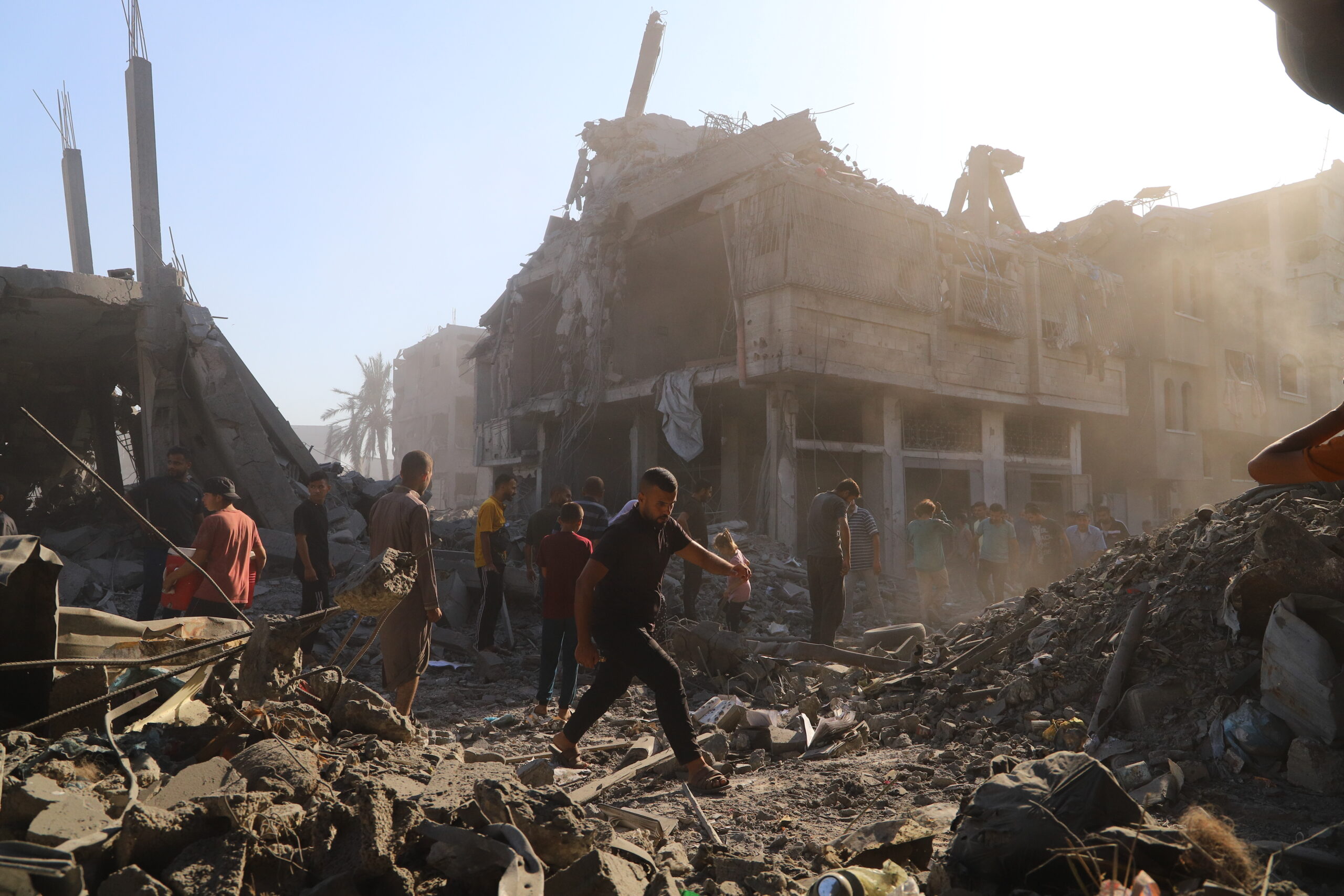A new survey by the Jerusalem Center for Public Affairs (JCPA) reveals that 52% of Israelis support an Israeli military administration in Gaza after hostilities cease—assuming all hostages are released. Only 4% favor a continuation of Hamas control. Additionally, 64% oppose the establishment of a Palestinian state on the pre‑1967 lines; only 8% support it unconditionally, and 17% back it on the condition of recognition of Israel as a Jewish state and Palestinian demilitarization. Views differing strongly along political lines: opposition among Jewish respondents tops 77%, rising to 88% among right‑wing voters.
The Palestinian Authority (PA) is similarly unpopular: 53% oppose any PA role in post-war Gaza, while just 26% support involving it; Jewish Israelis’ opposition climbs to 59%. Concerning U.S. policy proposals, 69% of Israelis back Trump’s Gaza plan, with 82% support among Jewish respondents, despite Arab Israeli opposition increasing from 50% in May to 56% in July 2025.
In February 2025, during a ceasefire in the war between Israel and Hamas, President Trump declared his intent for the United States to take over administrative control of the Gaza Strip. Trump expressed his vision to redevelop the territory into the “Riviera of the Middle East”. The plan would call for allowing the approximately 2 million Palestinians to leave as refugees to neighboring lands. It would also require the removal of over 50 million tonnes of debris and unexploded ordnance.
The plan rejects any return of Hamas and emphasizes de-radicalization, infrastructure rebuilding, and disarmament. A central aspect of the plan is that Israel retains security control during a transitional period, while an international Arab-led civilian administration rebuilds the Gaza Strip and provides basic governance. Trump’s plan also includes economic incentives and reconstruction funding tied to the complete disarmament of terrorist groups and the cessation of incitement against Israel.
The JCPA survey reflects deep-rooted anxieties in Israeli society as the war in Gaza persists. A clear majority supports temporary military rule, signaling mistrust toward both Hamas and the Palestinian Authority. Support is strongest among right‑leaning and Jewish Israelis and reflects fears of renewed attacks reminiscent of the October 7, 2023 massacre near Gaza.
The historical context shows that despite the 2005 disengagement, Israel maintained significant control over Gaza, which contributed to sustained instability and periodic violence. The current war has heightened demands for a secure “day after” Gaza plan—one largely premised on Israeli oversight or international governance, rather than Palestinian-led structures.
The survey underscores a pivotal moment in Israeli public opinion. With over half the population backing military rule in Gaza post-war, it reflects a collective impulse toward strong security measures and deep skepticism toward the PA or Hamas governance. The history of occupation, settlement, disengagement, and continuing control over Gaza—despite formal withdrawal—suggests that the future of the region remains entangled in security, sovereignty, and longstanding political distrust.
When asked about peace with Syria, only 7% support unconditional normalization of relations. But 72% support a deal if Israel retains security freedom (42%) or if Syria drops its claim on the Golan Heights (23%). Only 10% oppose any agreement.
The poll, conducted by Menachem Lazar of Lazar Research at the beginning of July, sampled more than 700 Israelis, both Jews and Arabs, aged 18 and up. It explored views on Gaza’s future, a Palestinian state, ties with the Palestinian Authority, and wider regional issues including Iran and Syria.
A Brief History of Israel’s Presence in Gaza (Since 1900)
Israel’s connections to Gaza have evolved dramatically over the past century:
- Early 20th century: Under Ottoman and then British Mandate rule, Jews lived sporadically in Gaza. Around 1900–1914, a small Jewish community coexisted there until expelled during Ottoman repression of WWI-era tensions; some returned in the 1920s, but after the 1929 Arab riots, they were banned by the British.
- 1949–1967 (Egyptian control): After the 1948 Arab–Israeli war, Gaza became an Egyptian-administered territory. Egyptian authorities did not grant Gaza residents citizenship, and UNRWA began managing refugee affairs.
- 1967–2005 (Israeli occupation and settlements): During the 1967 Six-Day War, Israel captured Gaza from Egypt and established a military administration. Over the next decades, it built around 21 Israeli settlements, notably the Gush Katif bloc, occupying up to 20–25% of the Strip, while controlling land, water, economic activity, and population registry.
- 1994–2005 (Oslo peace and partial Palestinian authority): Under the Oslo Accords, Israel began transferring civil authority in Gaza to the Palestinian Authority, though security and settlements remained under Israeli control.
- 2005 (Disengagement): Israeli Prime Minister Ariel Sharon executed a unilateral withdrawal, evacuating all settlers (~8,600 residents) and dismantling the settlements. Israel retained control of Gaza’s borders, airspace, maritime access, and Palestinian population registry, leading many legal experts and the UN to still consider Gaza under occupation despite the withdrawal.
In the aftermath, Hamas seized control following elections in 2006, leading to recurrent conflicts including major Israeli operations—such as Cast Lead, Pillar of Defense, and Protective Edge—and a continuing blockade enforced by Israel and Egypt .




